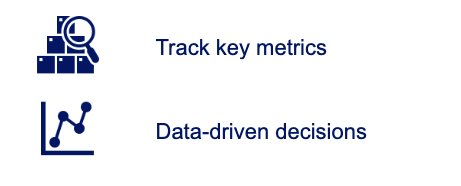Making success repeatable in the construction industry

The African Development Bank's (AfDB) African Economic Outlook report predicts that Africa will consolidate its post-pandemic recovery to achieve GDP growth of more than 4% in 2023 and 2024.
"The report shows that in the face of these challenges, African economies have demonstrated remarkable resilience," said Dr Akinwumi Adesina, president, AfDB.
The outlook remains more subdued in the short to medium term in South Africa.
According to Otto Botha, MD of Waco Engineering Services, the construction sector continues to struggle due to the government’s failure to implement the Infrastructure Delivery Plan, lack of funding, and less demand from the private sector.
Everyone in the construction industry is looking for strategies
to improve their bottom line.
In this article, we share valuable insights on consistently achieving tendering success, leading to increased sales and market share. We specifically focus on proposal automation technology that can help you win more often.
Mastering tendering success in the construction industry
The construction industry is a highly competitive and rapidly evolving sector. Real estate developers, architecture and design firms, engineering firms, construction management companies, and general contractors face numerous obstacles – including difficulties in business development, tendering, and creating sales proposals.
Tenders are the lifeline of many businesses, necessary to secure projects and income. They can be the difference between a profit or loss, business expansion or contraction. However, tendering can be difficult and expensive, with intense competition, tight deadlines, and complex requirements.
There are several misconceptions about tendering in the construction industry that can hinder companies from achieving repeatable success. One common myth is that tendering success solely depends on the lowest price.
While price is important, the quality and completeness of the proposal,
the company's track record, and the ability to
meet the project's requirements play a significant role.
Successful companies have realised that by investing in professional proposal managers, streamlined bid processes, and advanced tools, they can transform tenders into winning proposals – consistently and repeatedly.
Technology enables repeatable success
Proposal automation software transforms how businesses respond to tenders, requests for information, quotes, proposals, and more.
These cloud-based tools help teams automate tedious and manual proposal processes. They manage content libraries, making finding and using the most relevant content for each response easier. Additionally, they enable efficient collaboration, ensuring proposals are completed on time and to the highest possible standard.
With features like project and task management, team communication tools and powerful analytics, it streamlines the proposal development process – simply, effectively, and repeatedly.
Overcoming the three biggest challenges
Challenge 1: Time-consuming and inefficient proposal processes
Players in the construction industry often need help managing the complex and time-consuming tendering process. Inefficient proposal processes can lead to missed deadlines, inconsistent messaging, reduced win rates, and lower income.
Proposal automation software can significantly reduce the time spent creating proposals by automating repetitive tasks and centralising proposal-related data. With a comprehensive content library, you can store and manage previous proposal content in one central location, making it easy to reuse and repurpose content, saving valuable time and ensuring consistency across all proposals. AI-powered answer libraries that automatically suggest relevant content for each RFP question make creating accurate and comprehensive proposals significantly quicker and easier.
According to a Forrester report, sales teams spend up to 30% of their time searching for or creating content for proposals.

The interviewed organisations experienced a 35% reduction in time spent on RFPs and other proposal-related tasks after implementing proposal automation software. The time required to complete RFPs decreased by 25-50% for the same organisations. The result is 50% more capacity for proposal resources to improve the overall quality of the work they do, enriched work-life balance and more time to work on revenue generating projects.
Take action
- Evaluate and select a proposal automation software that fits your company's needs and integrates with your existing systems.
- Create a centralised content library where all proposal-related materials can be stored and easily accessed.
- Train your team on the proposal automation software, ensuring everyone understands its features and benefits.
By implementing these steps, players in the construction industry can significantly reduce the time spent on creating proposals, allowing them to focus on other critical business development activities and ultimately increasing their chances of winning projects.
Challenge 2: Lack of collaboration and accountability in proposal teams
Projects often involve multiple stakeholders, including architects, engineers, and subcontractors. The lack of effective collaboration and accountability among team members can lead to communication bottlenecks, errors, and proposal inconsistencies, negatively impacting the company's chances of winning projects.
Proposal automation software streamlines collaboration among team members by offering a centralised platform for real-time proposal development. This fosters better communication and reduces errors. The software's robust collaboration features allow users to assign tasks, set deadlines, and track progress, ensuring all team members are aligned and working towards the same goal.

According to the report, improved collaboration and communication are key benefits of proposal automation software. The interviewed organisations also reported that the software enabled their teams to work together more effectively, reducing confusion and miscommunication.
Take action
- Establish a clear proposal team structure and assign roles and responsibilities to each team member.
- Use the collaboration features of your chosen proposal automation software to assign tasks, set deadlines, and monitor progress.
- Encourage open communication and regular check-ins among team members to ensure everyone stays aligned and accountable.
Implementing these steps will help construction companies improve collaboration and accountability in their proposal teams, resulting in higher-quality proposals and win rates.
Challenge 3: Inability to continuously improve proposal processes
Continuous improvement is crucial to stay competitive. However, many companies need more data and insight to identify areas of improvement in their proposal processes.
The analytics and reporting features in Proposal Automation Software offer valuable insights that enable construction companies to improve their tendering process continuously. By tracking key performance indicators (KPIs) and analysing proposal data, companies can identify areas where they excel and areas that need improvement, allowing them to refine their approach and increase their chances of winning future projects.
The same report emphasises the importance of analytics and reporting features in proposal automation software, stating that these features help organisations gain insights into their proposal processes and identify areas for improvement.

The interviewed organisations reported that the software's analytics and reporting features allowed them to track key metrics, such as response and win rates, to make data-driven decisions and improve their proposal strategies.
Take action
- Define KPIs and metrics relevant to your company's proposal processes and goals..
- Use the analytics and reporting features of your chosen proposal automation software to track and analyse your proposal data.
- Implement data-driven improvements to your proposal processes based on the insights gained from the analysis.
By following these steps, construction companies can continuously optimise their proposal processes, leading to increased win rates and a stronger competitive edge in the market.
Proposal automation technology – a strategy for tendering success
In conclusion, the construction industry is highly competitive and constantly evolving, making it crucial for companies to adapt and stay ahead. Mastering tendering success is a critical factor in achieving growth and profitability. By debunking common misconceptions about tendering and embracing technology, construction companies can transform their approach to proposals and achieve consistent success.
Proposal automation software is a game-changer in the construction industry, streamlining the proposal development process, fostering collaboration, and providing valuable insights for continuous improvement. By implementing proposal automation software and following the actionable steps outlined in this article, companies can increase their efficiency, improve proposal quality, and win more projects.
As the African construction industry continues to grow and evolve, now is the time for companies to invest in the tools and strategies that will propel them to success. Don't get left behind – embrace proposal automation and make tendering success repeatable in your construction business. Evaluate and select a proposal automation software solution that suits your company's needs and start reaping the benefits of streamlined proposal development and improved tendering success.
About nFold
At nFold, we understand the importance of having robust and effective tender and proposal support. Our team of certified proposal experts help clients achieve their business objectives by providing tailored solutions and support throughout the proposal process. If you want to learn more about how our services will help your organisation enhance its capabilities, don't hesitate to contact us for a no-obligation consultation. Together, we can unlock your organisation's potential and drive long-term success in winning more business.
Source:
The Total Economic Impact of Loopio's Response Management Platform




























